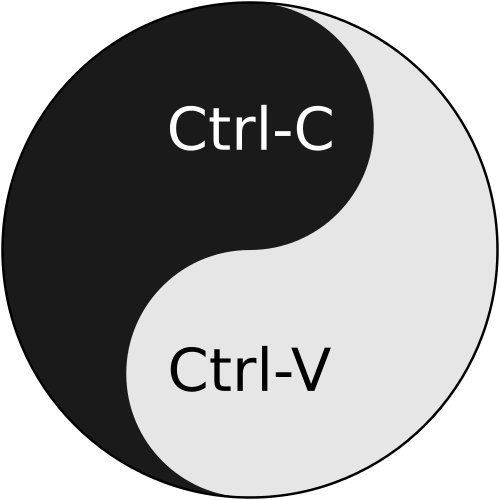
In today's digital world, where information exchange has become commonplace, an original religion has emerged that celebrates the act of copying and pasting. Welcome to the world of Kopimism, a religious movement that considers the CTRL+C and CTRL+V keyboard shortcuts as sacred.
Kopimism takes its name from the word "kopimi," derived from the Swedish word "kopiera" (to copy), and represents the fundamental idea of freely sharing knowledge and information. It was officially founded in 2010 in Sweden by a philosophy student named Isak Gerson. Since then, this religion has gained popularity worldwide, attracting like-minded followers.
Adherents of Kopimism believe that the act of copying and sharing information is sacred and should be celebrated rather than repressed. They see the internet as a virtual temple where ideas and knowledge should flow freely. According to them, every individual has the right to copy and distribute information without restrictions.
Symbolism in Kopimism revolves around the CTRL+C and CTRL+V keyboard shortcuts, which are considered sacred icons. These shortcuts represent the ability to duplicate and transmit information quickly and efficiently. Kopimism followers may use these symbols in their rituals and ceremonies to express their adherence to the principles of knowledge sharing.
However, it's important to note that Kopimism does not promote computer hacking or any form of illegal activity. Followers are encouraged to respect copyright laws and share only content that can be legally shared. They believe in the free flow of information but also acknowledge the rights of creators and authors.
In 2012, Kopimism was recognized as a religion in Sweden, allowing its adherents to practice their beliefs legally and enjoy the same rights and protections as other religions. This official recognition was seen as a significant milestone for the movement, granting it legitimacy in society.
Kopimism is a fascinating example of how new technologies and evolving society can give rise to new forms of religious expression. It challenges traditional notions of spirituality and explores the potential of knowledge sharing in the digital age.
Whether one views Kopimism as a genuine religion or simply a cultural movement, it raises interesting questions about intellectual property, freedom of expression, and the limits of information transmission. Regardless, it is undeniable that Kopimism offers a unique perspective on our relationship with technology and our ability to connect and disseminate knowledge.
AnonMoos, Public domain, https://fr.wikipedia.org/wiki/Kopimisme#/media/Fichier:Kopimizm.svg


0 comments: